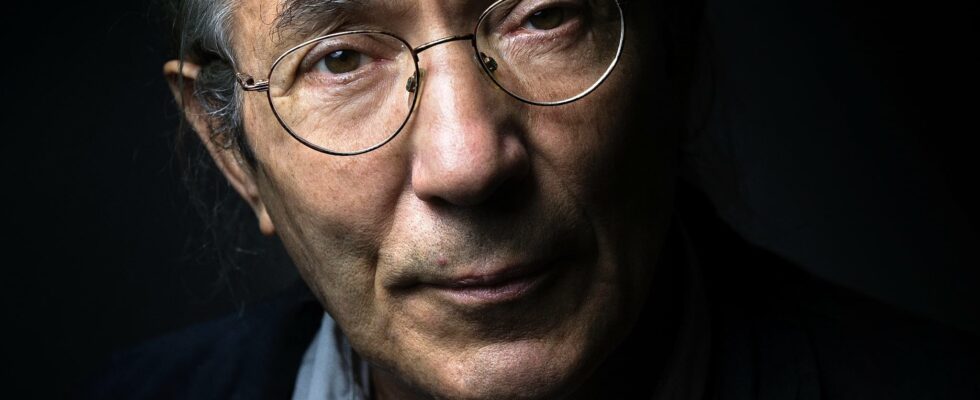For months, the phone has been ringing in vain in Algiers. On the southern shore of the Mediterranean, no one dares to answer when the name of a French journalist appears on the screen. What if the secret services listened? What if we handcuffed them one fine morning for saying too much? Keep silent to survive, not languish, like so many others, in the regime’s prisons.
On the phone, Boualem Sansal has not answered since November 16, 2024, the date on which the Algerian writer – recently naturalized French – landed in Algiers… and lost his cherished freedom. According to the RFI correspondent, plainclothes security agents arrested him a few kilometers from the airport. The 75-year-old author, tireless slayer of Algerian power and Islamism, risks prison for “undermining national unity”. His comments to the far-right media Livre noir could be to blame. “When France colonized Algeria, the entire western part was part of Morocco,” he declared in this interview of October 2.
The same week, we learned that his friend Kamel Daoud, another great voice of dissent, was the target of two complaints in his country of origin, about his latest novel which had just won the Goncourt Prize: Hourisimmersed in the life of a victim of the civil war which ravaged Algeria in the 1990s. A survivor of this “black decade” accuses the writer of having drawn his story from confidences made to his wife, a psychiatrist, thus violating medical confidentiality. Kamel Daoud is also the target of a complaint for violation of the law on national reconciliation, which prohibits the evocation of “wounds of the national tragedy”.
Fear about the diaspora
“In Algeria, justice is under orders,” underlines Pierre Vermeren, professor at the Sorbonne and author of Maghreb dissidents (Belin, 2018). These two cases proceed from the same mechanism, which consists of silencing the two best-known figures of intellectual Algeria. Many voices have already been silenced in Algeria, now the regime is attacking these personalities of international rank. And delivers a message to France, perpetually accused of exploiting the regime’s opponents.”
Daoud, Sansal, two free spirits, two Algerians who chose to take, in addition to their own, French citizenship, as a snub to the impossible reconciliation between the two capitals. “The arrest of Boualem Sansal sounds like a punishment for France after two “affronts”, continues Pierre Vermeren: the naturalization of Sansal a few weeks ago and the Goncourt prize awarded at the beginning of November to Kamel Daoud.
“The government has wanted to muzzle the diaspora for a long time. It has moved on to practical work, says an exiled Algerian intellectual who requested anonymity. The regime is taking France hostage on its fundamental principles: Emmanuel Macron has no other choice than to react to the arrest of one of its nationals.” The French president said, on November 21, that he was “very concerned by the disappearance” of Boualem Sansal, according to his entourage. The next day, the official Algerian press agency APS criticized France for “defending a Holocaust denier who calls into question the existence, independence, history, sovereignty and borders of Algeria. “
This new stage in the hardening of the regime comes at a time of tension in diplomatic relations between Paris and Algiers after the recognition by the Elysée, this summer, of Morocco’s sovereignty over Western Sahara – claimed by the Polisario Front, an ally of Algiers.
France has since attempted appeasement gestures: the day after the re-election of President Tebboune, Emmanuel Macron sent his North Africa advisor to meet the head of state. A few days later, he recognized France’s responsibility in the assassination of the Algerian nationalist Larbi Ben M’hidi in 1957. Alas, the Western Sahara pill did not pass. After having considered breaking off commercial relations with Paris, the Algerian generals, sole masters of the country, crossed a new threshold.
“After the parenthesis of hirakfear has returned, everywhere, notes Pierre Vermeren. However, if the authorities are capable of attacking the most famous writer, aged 75, of French nationality, protected by all the Parisian elites… Imagine what the “ordinary Algerian” might feel. You tell yourself that no one will talk about you or come to your aid. Therefore, you only have one thing to do: keep quiet.” Already, in Paris and elsewhere, the voices of the Algerian diaspora are becoming more discreet, incited by their families remaining in the country. Everywhere, the same fear . And with it its tragic corollary: silence.
.
